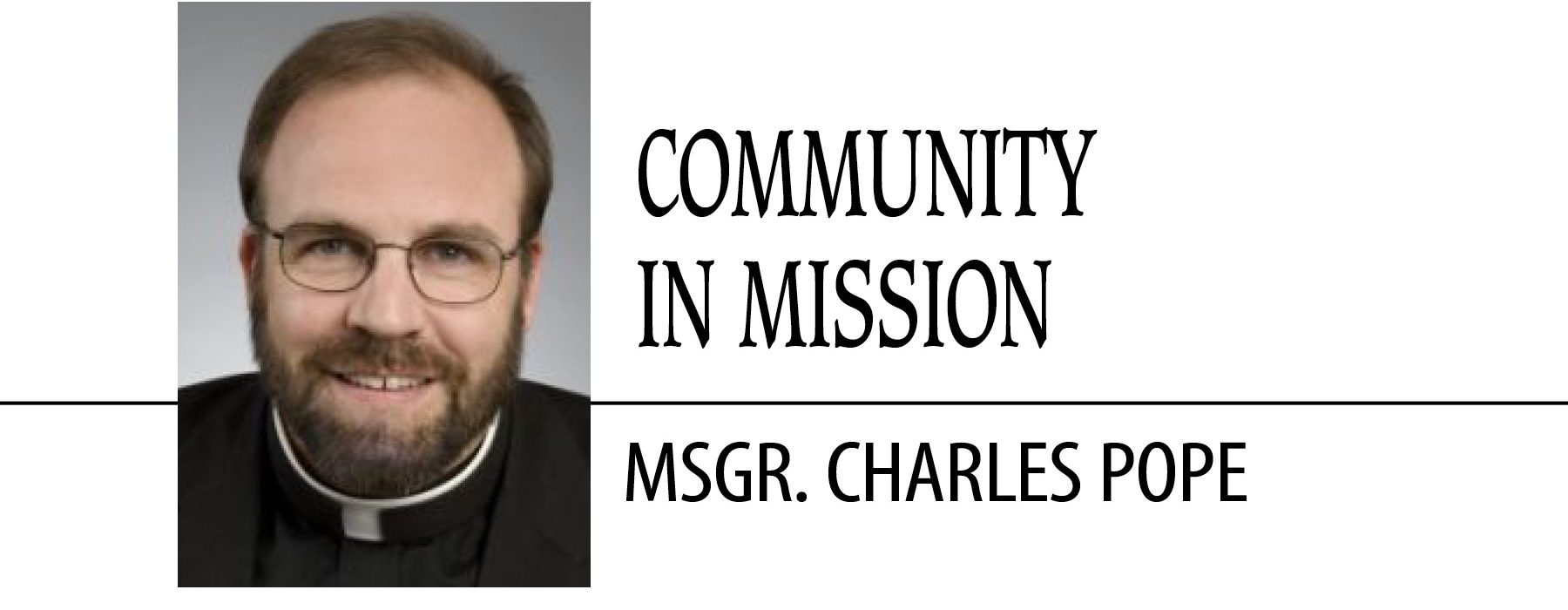January 23, 2019 // Perspective
Our most primal fear
At Mass for Wednesday of the first week of the year, we read a text from Hebrews that describes our most basic and primal fear. Our inordinate fear of what people think of us is rooted in an even deeper fear, one that is at the very core of our being. The Hebrews text both names it and describes it as being the source of our bondage. In order to unlock the secret of the text, I want to suggest to you an interpretation that will allow its powerful diagnosis to have a wider and deeper effect.
Consider this text from Hebrews:
“Since the children have flesh and blood, [Jesus] too shared in their humanity so that by his death he might destroy him who holds the power of death — that is, the devil — and free those who all their lives were held in slavery by their fear of death” (Heb 2:14-15).
This passage is clear in saying that the devil is the origin of our bondage to sin, but also that hold on us is through the fear of death. This is what he exploits in order to keep us in bondage.
When I have explored this teaching with people, I have found that many have difficulty understanding it at first. Especially for the young, death is almost a theoretical concept; it is not something they consciously fear. This is particularly true in the modern age, when medical advances have so successfully pushed back the boundary between life and death. Every now and then something may shake us out of our complacency (perhaps a brush with death), but in general death does not dominate our thoughts. So, then, what is meant by the fear of death and how does it hold us in bondage?
Well, what if we were to replace the word “death” with “diminishment”? To be sure, this is an adaption of the text (the Greek text — phobo thanatou) is accurately translated as “fear of death”), but doing so can help us to see what the text is getting at in a wider sense. It doesn’t take long to realize that each diminishment we experience is a kind of “little death.” Diminishments make us feel smaller, less powerful, less glorious.
What are some examples of diminishments we might experience? On one level, a diminishment is anything that makes us feel less adequate than others. Maybe we think others are smarter or more popular. Perhaps we do not feel attractive enough; we’re too tall, too short, too fat, or too thin. Maybe we resent the fact that others are richer or more powerful. Perhaps we wish we were younger, stronger, and more energetic. Maybe we wish we were older, wiser, and more settled. Perhaps we feel diminished because we think others have a better marriage, a nicer home, or more accomplished children. Maybe we compare ourselves unfavorably to a sibling who has done better financially or socially than we have.
Advertisers know how to exploit the fear of diminishment in marketing their products. I remember studying this topic in business school at George Mason University. The logic goes something like this: You’re not pretty enough, happy enough, adequate enough, or comfortable enough; you don’t look young enough; you have some chronic illness (e.g., depression, asthma, diabetes) — but just buy our product and you will be “enough”; you won’t be so pathetic, incomplete, and, basically, diminished. If you drink this beer, you’ll be happy, have good times, and be surrounded by friends. If you use this toothpaste, soap, or cosmetic product, you’ll be surrounded by beautiful people and sex will be more available to you. If you drive this car, people will turn their heads and be impressed with you. The message is that you don’t measure up now (you’re diminished) but our product will get you there. Just buy it and you’ll be happier, healthier and more alive!
Perhaps you can see how such advertising appeals to greed, pride, materialism and worldliness; it puts forth the lie that these material things will solve our problems. In fact, appeals like this actually increase our fear of diminishment (and death) because they feed the notion that we have to measure up to these false and/or unrealistic standards.
It is my hope that you can see how very deep this drive is and how it enslaves us in countless ways.
This demon (fear of death, of diminishment) must be named. Once named and brought to light, we must learn its moves and begin to rebuke it in the name of Jesus. As we start to recognize the thought patterns emerging from this most primal of fears, we can gradually, by God’s grace, replace this distorted thinking with proper, sober, and humble thinking — thinking rooted in God’s love for us and the availability of His grace and mercy.
The text from Hebrews above is clear in saying that this deep and highly negative drive is an essential way in which Satan keeps us in bondage. It also says that Jesus Christ died to save us and free us from this bondage. Allow the Lord to give you a penetrating and sober vision of this deep drive, this deep fear of diminishment and death. Allow the light of God’s grace and His Word to both expose and heal this deepest of wounds.
The best news. Delivered to your inbox.
Subscribe to our mailing list today.






